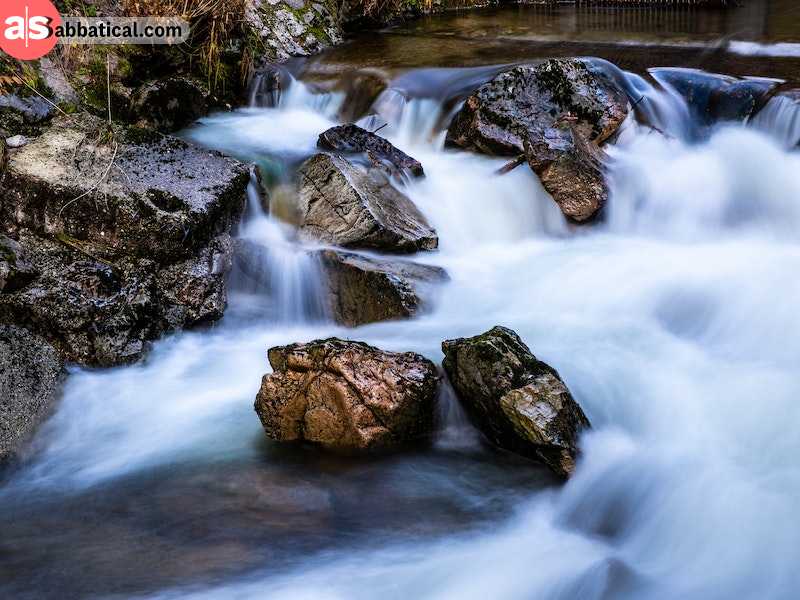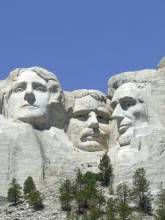Why National Parks Are So Important for People & Nature
Nature has always been a constant source of awe and inspiration for humanity because of its stunning beauty and complex ecosystems. Establishing national parks demonstrates a dedication to protecting these environmental gems while enabling people to enjoy their beauty. It is impossible to exaggerate the importance of these protected places in this regard. The growing symbiotic relationship between people and nature is an example of this significance.
The History of US National Parks

Where it All Began
The journey of the US national parks began in 1872 with the establishment of Yellowstone National Park. This groundbreaking move marked the birth of the world's first national park and set in motion the creation of a system that would protect and preserve the country's natural wonders for generations to come.
Inspired by Yellowstone's success, other areas of scenic and historical significance were gradually added to the national park system. In 1916, President Woodrow Wilson signed the Organic Act, which created the National Park Service (NPS) and tasked it with the responsibility of managing the growing number of parks. This was a significant milestone in the evolution of the national park system, as it provided a unified approach to conservation and ensured the long-term protection of these cherished landscapes.
Over the years, the national park system expanded to include a diverse range of ecosystems, from the towering peaks of Denali National Park in Alaska to the lush wetlands of Everglades National Park in Florida. Each park offers a unique experience and showcases the remarkable diversity of the American landscape.
Key Figures in the History of US National Parks
The history of US national parks is intertwined with the stories of visionary individuals who recognized the importance of preserving the nation's natural wonders. One such figure is President Theodore Roosevelt, who played a pivotal role in conserving vast areas of land during his time in office.
Roosevelt's passion for nature and wildlife led him to establish five national parks, including Crater Lake National Park and Mount Rainier National Park. His efforts to protect these areas laid the foundation for the future growth of the national park system.
Another key figure in the history of US national parks is John Muir, a naturalist and conservationist who dedicated his life to preserving the wilderness. Muir's advocacy for the protection of Yosemite Valley and the surrounding Sierra Nevada range played a crucial role in the establishment of Yosemite National Park in 1890.
Muir's influential writings and his role as the founder of the Sierra Club helped raise awareness about the importance of conservation and laid the groundwork for the environmental movement in the United States.
The Benefits National Parks Bring to People & Nature

1. Bridging the Gap Between Humans and the Natural World
National parks connect urban life and the great outdoors. These parks present a priceless chance for people to re-establish a connection with the cycles of nature in today's fast-paced society where concrete landscapes rule. Visitors are taken to a region of tranquility that revitalizes the soul, surrounded by beautiful forests, tumbling waterfalls, and fauna. This invitation is extended to everyone seeking comfort in nature.
2. Preservation of Biodiversity
Protecting unique plant and animal species is among the National Park Service's priorities. These protected areas offer a haven for a diverse range of plant and animal species, most of which are native to the region and threatened by extinction. Without the interference of human activity, the fragile ecosystems contained within these parks are allowed to flourish, which helps preserve genetic diversity and ecological harmony. National parks, help preserve the complex web of life that exists across the planet due to their actions.
3. Natural Laboratories for Scientific Exploration
Scientific inquiry and exploration are significantly aided by the natural environments provided by national parks. As these protected places are removed from the disruptions caused by urban life, they transform into natural laboratories where scientists can investigate ecosystems, observe species' behavior, and comprehend the effects of climate change. Researchers have the opportunity to delve into the complexities of ecology at national parks, which will ultimately lead to a deeper understanding of the natural processes that occur in the world.
4. Cultural and Historical Significance
National Parks are significant in terms of culture, history, and ecology. These regions frequently contain historical artifacts, such as ancient indigenous settlements and significant buildings. The parks allow visitors to connect with their cultural past by preserving these locations, developing a sense of identification and belonging. For example, a National Park that is located in an area with a long history of coal mining stands as a tangible example of the tenacity and labor of earlier generations.
5. Gateway to Outdoor Recreation
National Parks provide a gateway to a wide range of outdoor recreational pursuits that promote both physical and mental renewal. If you want to visit New River Gorge National Park then you must consult expert services. This park, like many others, offers activities such as hiking, camping, rock climbing, rafting, and wildlife viewing. With its rocky terrain and meandering New River, New River Gorge transforms into a playground for thrill-seekers, inviting people to discover and enjoy nature's treasures.
6. Mitigation of Environmental Challenges
National Parks are essential in addressing today's environmental problems, which include habitat loss, pollution, and deforestation. These protected areas operate as natural barriers to urban growth and industrial invasion by safeguarding huge swaths of land. National parks protect the ecosystem's fragile balance against the onslaught of development thanks to its pristine vistas.
7. Education and Awareness
National parks serve as active classrooms where important lessons about nature's complexity and conservation's value are taught. Younger visitors, in particular, acquire personal knowledge that helps them develop a strong appreciation for the environment. These interactions foster a sense of obligation to protect the environment, raising a new generation of aware and responsible people. With their interpretive programs and guided tours, national parks transform into a center for environmental education and awareness.

Conclusion
National Parks are havens of hope and preservation in a world where nature's balance with humans is frequently threatened. Every US National park serves as a prime example of the crucial role that these protected areas play in preserving the environment while providing valuable benefits to humanity. The significance of national parks is unwavering as humans pursue sustainable coexistence; they symbolize our dedication to cherishing and defending nature's priceless resources.














